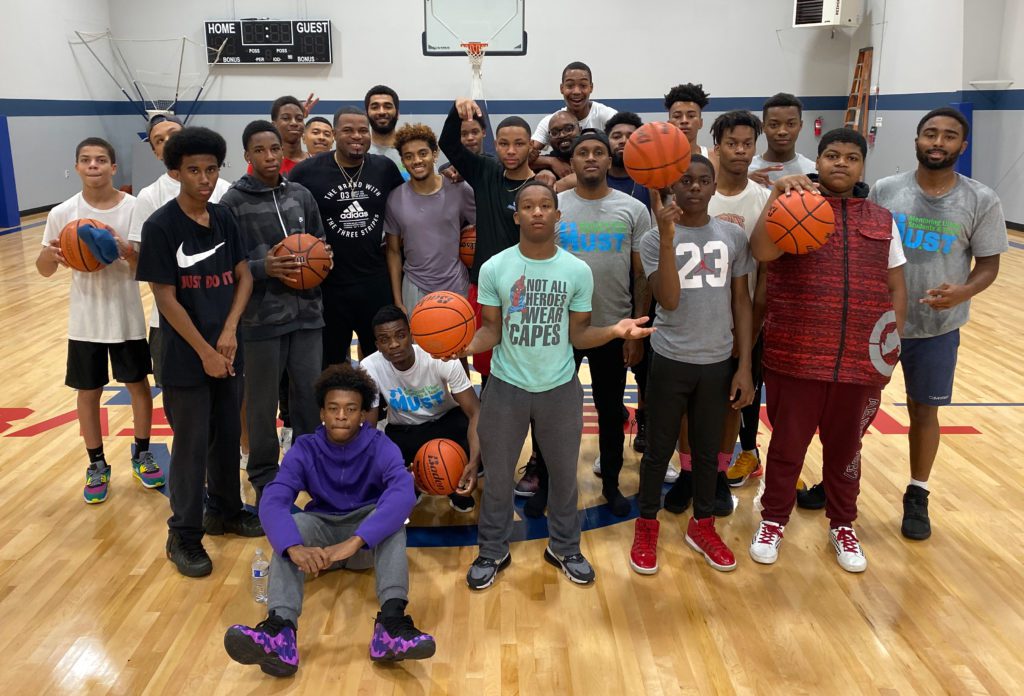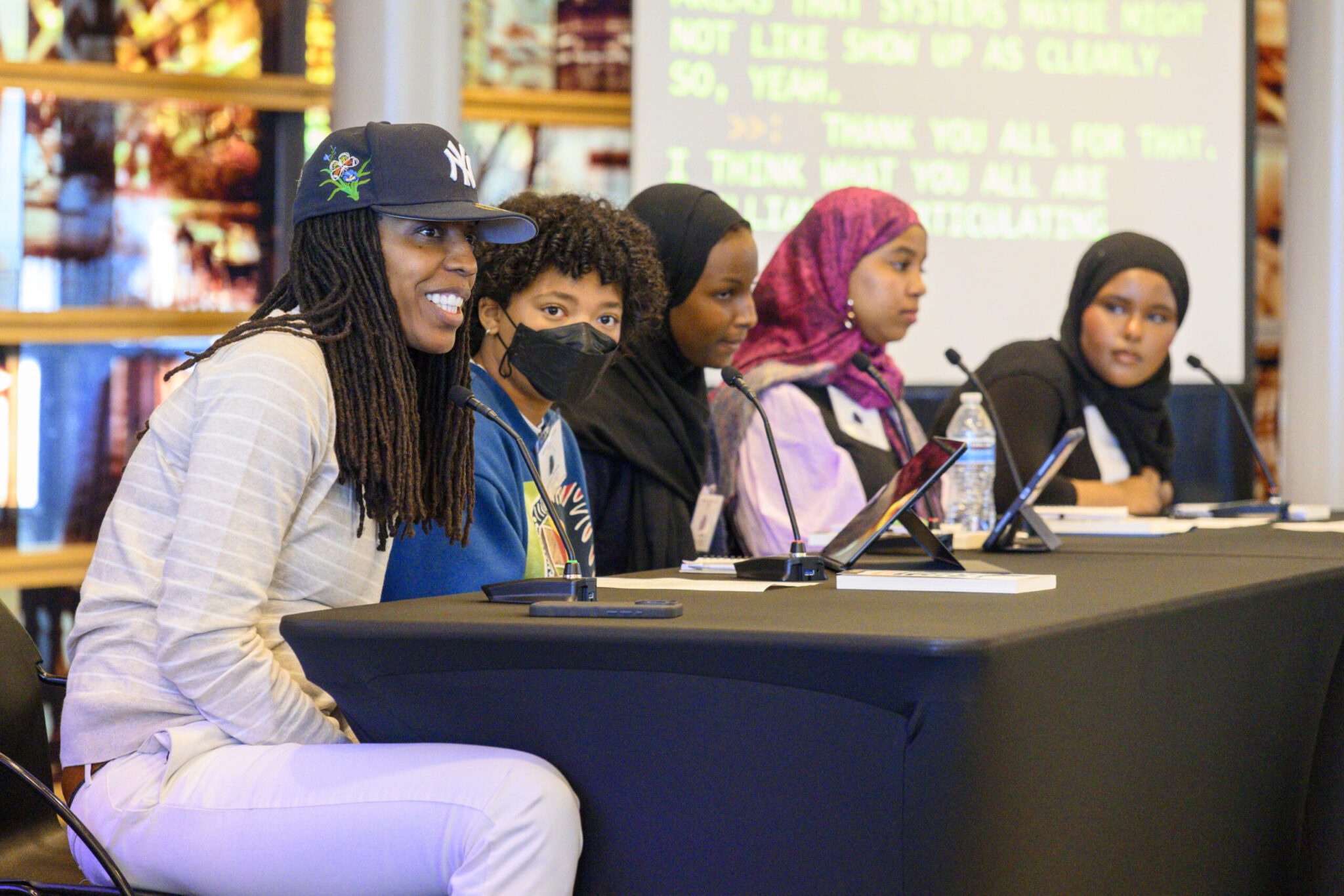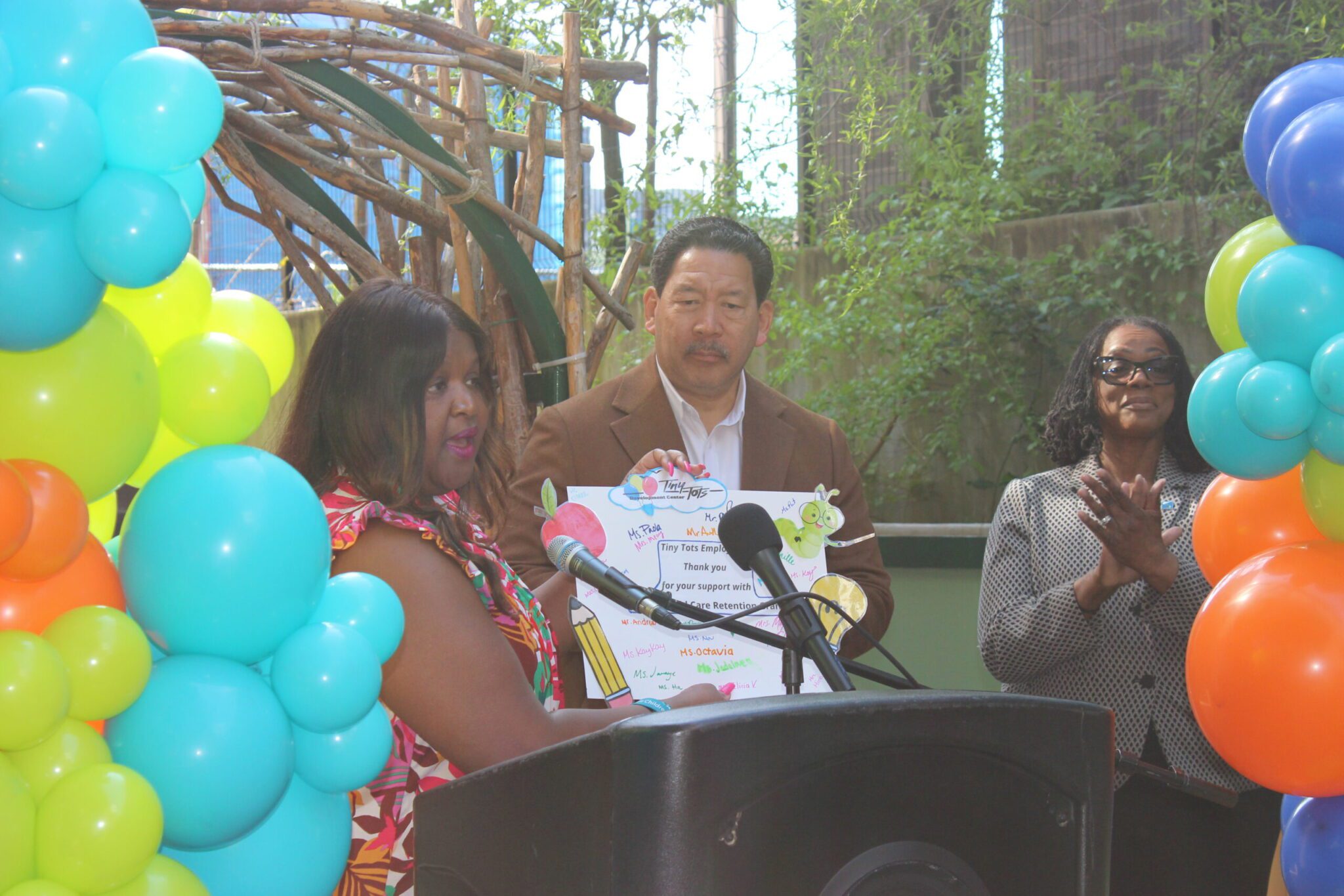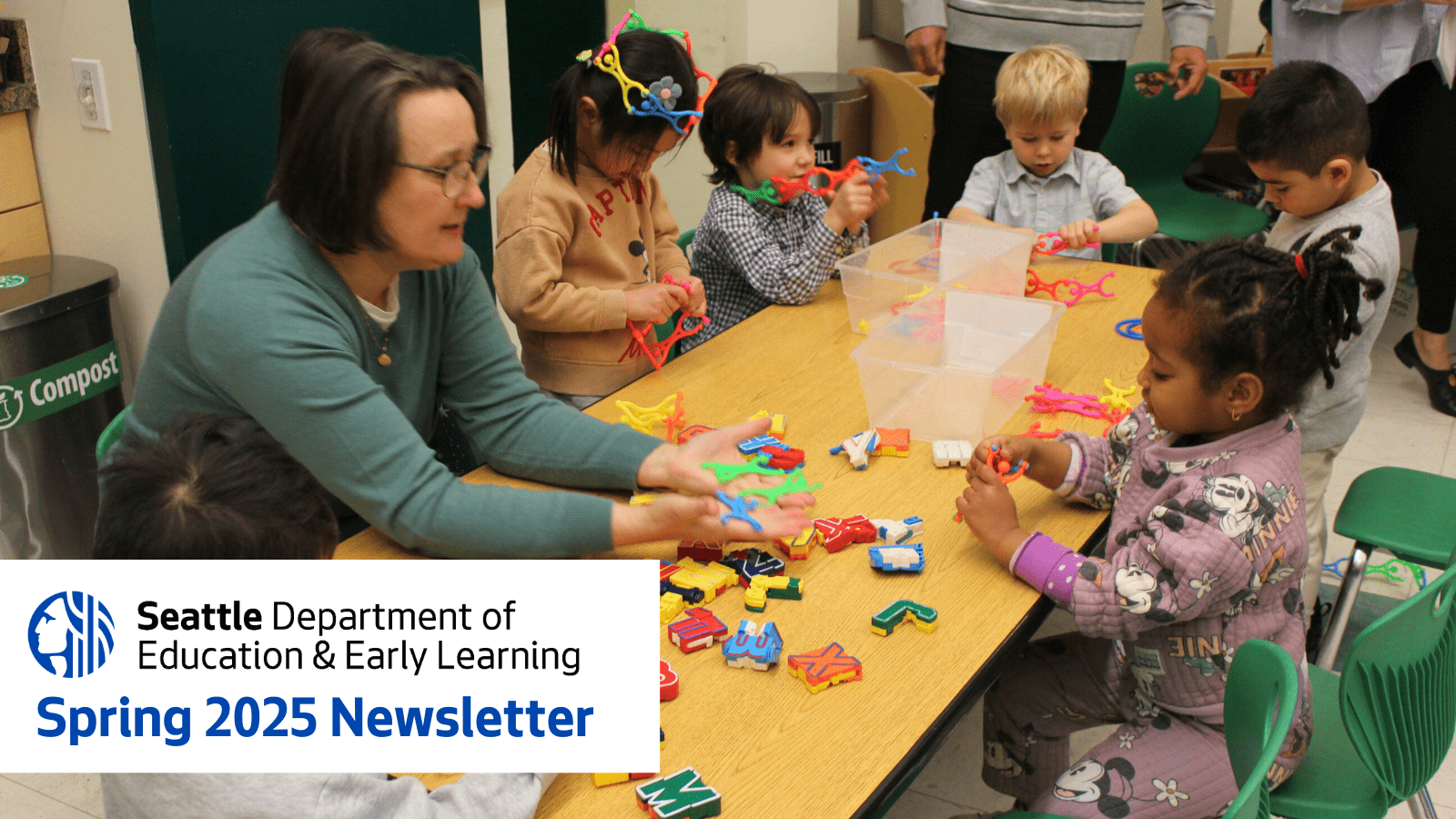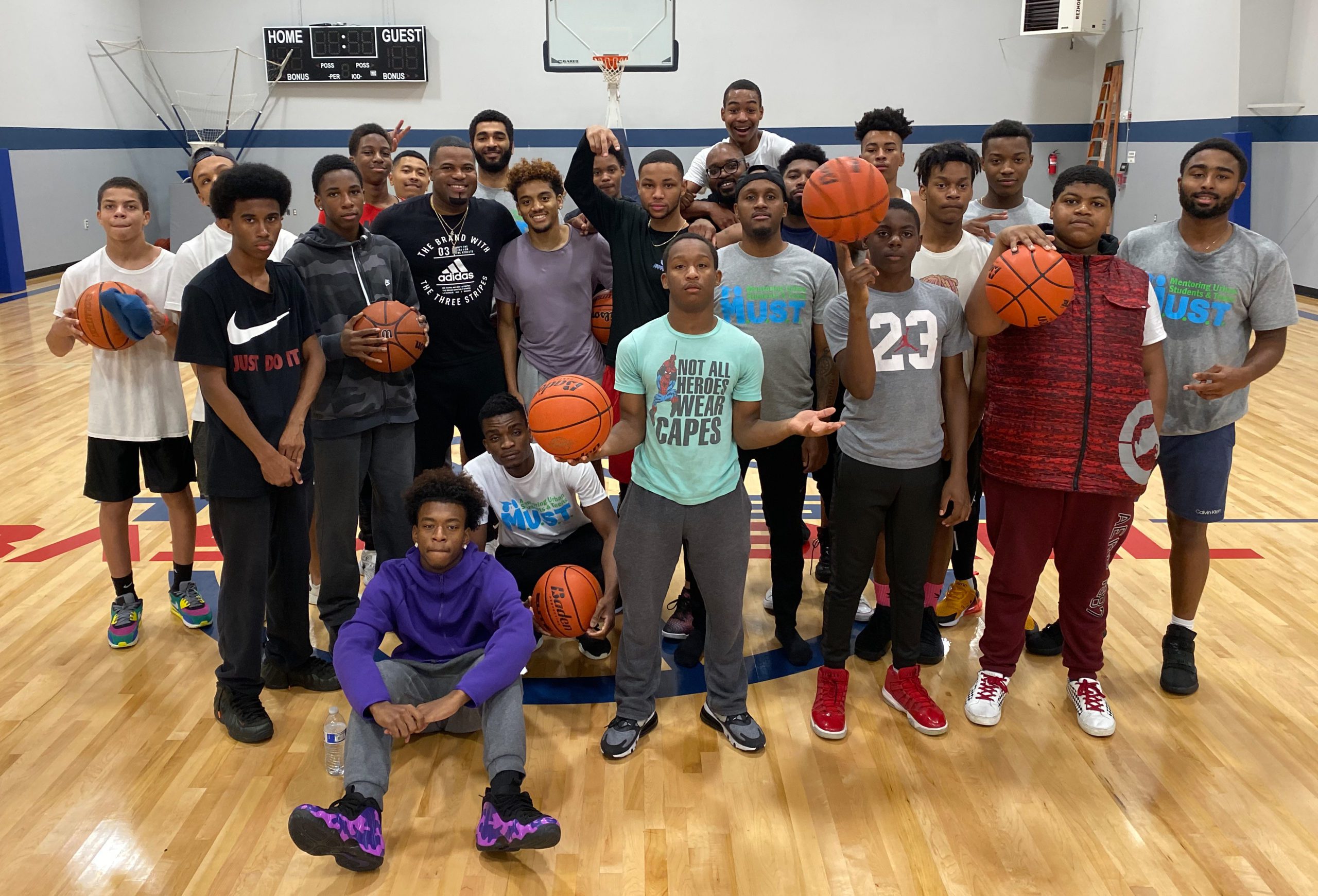 MUST mentors and mentees posing for a photo together after a basketball game before the start of the pandemic.
MUST mentors and mentees posing for a photo together after a basketball game before the start of the pandemic. As the 2020-2021 school year nears its end, DEEL is reflecting on the innovative ways our partners and providers pivoted during the pandemic to continue serving Seattle children, youth, and families. Here is an example highlighting how one of our Opportunity and Access partners, Mentoring Urban Students and Teens (MUST), provided continuity of near-peer mentorship services.
Social connection and mentorship became more important than ever for students during the COVID-19 pandemic. Cancelled academic and social activities put many students at risk of social isolation and disconnection from school, creating new social-emotional hardships for families. Simultaneously, the movements for racial justice that swept across our nation alongside the novel coronavirus unearthed historical trauma that compounded the urgent need for social connection and culturally responsive avenues for emotional wellness. One of DEEL’s Opportunity & Access partners doubled down on their commitment to provide safe, in-person mentorship services to keep Black high school boys in the Rainier Valley socially connected and engaged in school.
Mentoring Urban Students and Teens (MUST) is a community-based organization founded in 2012 that provides long-term, near-peer mentorship services to Black high school boys in Seattle who are most at risk for dropping out of school. MUST hires bright, young African American college males who often grew up under difficult circumstances themselves to serve as MUST mentors. MUST mentors are paired in their first year of college with freshmen boys attending Garfield, Franklin, Cleveland, or Rainier Beach High Schools to embark on a four-year mentorship commitment that builds a genuine, lasting bond between them. The mentor’s role is to support mentees to stay on track to graduate or attain their GED and work toward their college or post-graduation goals. MUST also provides supportive services to their mentors by providing them with coaches who are successful Black men in the community who volunteer to help MUST mentors navigate life, school, careers, and being positive role models for their mentees.
Because MUST’s foundation is built upon interpersonal relationships, MUST’s directors determined that continuation of safe in-person programming was crucial to support academic engagement, social connection, and affirm a sense of safety for the young men in their program throughout the pandemic and time of social unrest. Kelvin Washington, MUST’s Executive Director, implemented MUST Eats, in which mentors took orders from youth over the phone, picked up food, and delivered it to the youth’s home. Despite widespread cancellations and closures, this program provided high school youth with opportunities to have safe, physically distanced meals with positive role models to talk about their life aspirations and post-pandemic plans. Questions MUST mentors often ask students in the program include, “How are you doing? What do you want to do after high school? If your goals include college, how can I help you achieve that? How can I help you work toward your big life plans?”
“Many of our youth have to overcome a great deal to just survive, much less thrive, so seeing their brilliance, courage and perseverance is extremely inspiring. ‘Jimmy’ left his public high school because of poor academics and poor attendance,” said one MUST staff member. “MUST connected him with the wonderful people at Interagency and he turned things around. Jimmy ended up going back to his original high school and graduating on time. Jimmy will be attending Seattle Central College and is interested in Finance and Computers. Jimmy’s story is unique but his trajectory is not. Many MUST youth start off slow but end up sprinting through the finish line with peers and mentors cheering them on.”
Research has shown that when youth have access to relationships with caring adults, they are more likely to perform better in school and go on to live healthier, more successful lives. MUST was founded with the belief that near-peer mentoring accelerates the building of trust, because when youth have an opportunity to talk with someone each week with someone who looks like them and can authentically relate to their experience, they begin to trust that person faster. Jai McCurdy, a second-year MUST mentor, shared “Overall, a main focus for me has been guidance. I feel like I got good guidance, but I didn’t feel like [I had a] big brother . . . I didn’t really have that positive male figure to guide me, so I feel like I’m just really big on mentoring, because if I did have a big brother—somebody who was there for me more in that way—I probably would’ve made a better decisions.” MUST believes that their mentors have the power to change generations because they are not just changing the lives of their mentees, but the lives of their mentees’ future kids and their future kid’s kids.
In the 2020-2021 school year, 13 MUST mentors served 28 youth in this program. Although National data reflects that only 79% of Black Americans graduate high school and 37% graduate college, 83% of MUST youth are on track to graduate high school and 75% are on track to graduate college, which speaks to the success of this program. Next school year, MUST is planning to welcome over 40 high school youth who will be served by 20 mentors.
DEEL awarded $86K to MUST for the 2020-2021 school year as part of the Opportunity & Access investment area of the Families, Education, Preschool and Promise Levy passed by Seattle Voters in 2018. Opportunity and Access investments increase access to enrichment and academic experiences for students who are not yet meeting grade level standards, students of color, and historically underserved student populations with a focus on college and career readiness. MUST is set to begin a second contract for the 2021-2022 year for an additional $86K, beginning September 1. Mentor recruitment for the new school year began in the spring, with a July 1 program start date for mentors. Youth programming will begin on September 1.
Learn more about MUST at mentoringisamust.org.
